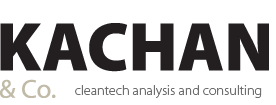Waste biomass to high value food and environmental remediation products
Submitted by Administrator on
0 comment(s)Cleantech sector(s):
NovaGreen has developed a unique process it is currently patenting to extract high value materials from inexpensive or free biomass feedstocks.
It is initially targeting the consumer food market, producing Inulin and Xylitol. Inulin is a ‘novel fibre’, a market expected to grow by 750% growth over the next three years, according to estimates. It is in demand as a nutrient additive by food processors including Kraft, Kellogg, Catelli, Danone, and PepsiCo. Xylitol is a sugar replacement product. It is diabetic-safe, and prevents tooth decay. These products are in short supply in the North American market. NovaGreen's high value, low capital expense solution is intended to address this unmet demand, the company says.
After initial extraction processes, nearly 70% of initial biomass remains available for further processing, NovaGreen claims. The company utilizes this remnant to create biochar and activated carbon. Biochar enhances growth, and improves water & nutrient retention in soil. Activated carbon is derived from this biochar. Part of a $2B annual North American market, NovaGreen says its activated carbon has unique properties that enable it to trap mercury and other air and waterborne toxins. Oil sands applications for its activated carbon are under early stage development, according to the company.
Feedstock used in the process is ‘remnant biomass’. Numerous agricultural and forestry biomass types can be used, the company claims. Wheat straw, corn stover, sugar cane bagasse, and many hardwoods can be used to diversify and ‘de-risk’ the project input base. Resulting outputs enable complete biomass utilization and high profitability, according to models.
